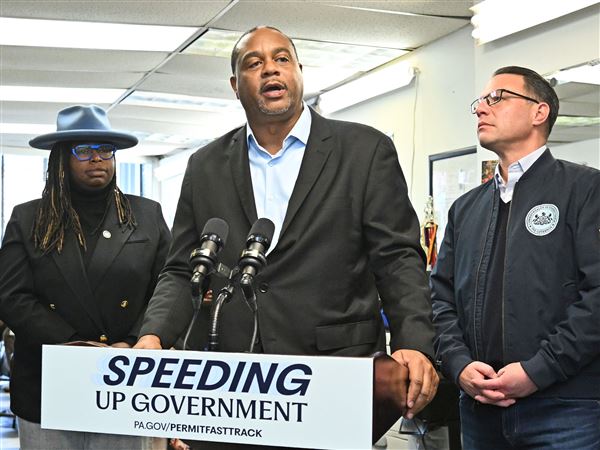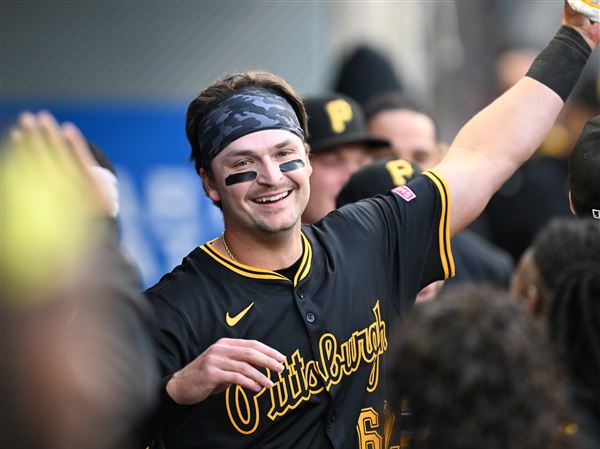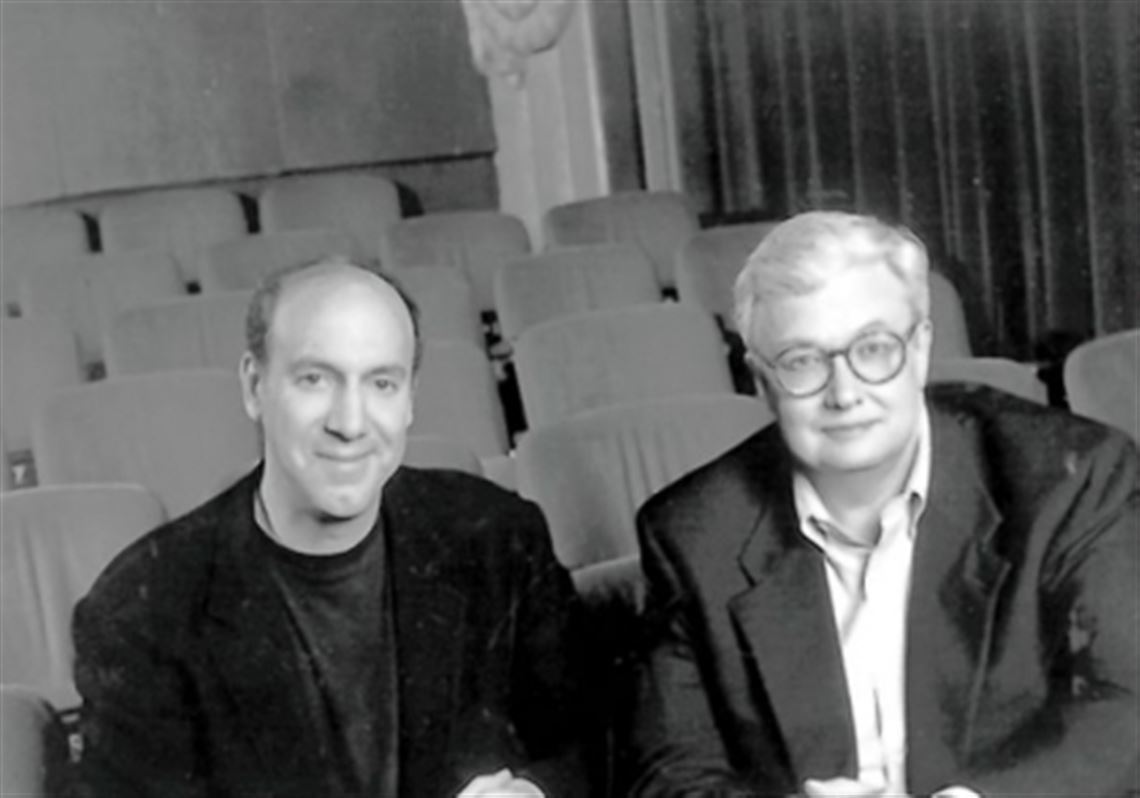Roger Ebert, the Pulitzer Prize-winning movie critic whose gladiatorial "thumbs-up, thumbs-down" assessments turned film reviewing into a television sport and whose passion for independent film helped introduce a new generation of filmmakers to moviegoers, died Thursday in Chicago. He was 70.
Mr. Ebert, who had battled cancer in recent years, died at a rehab facility two days after announcing on his blog that he was undergoing radiation treatment for a recurrence of cancer. He had undergone several surgeries to remove cancerous tumors from his thyroid and salivary glands, ultimately losing his jaw and speaking voice to the disease.
While his cancer diagnosis and the resulting treatments forced him briefly to pull back from criticism in 2006, he remained active as a writer and maintained a powerful presence on social media sites that included his award-winning blog, Roger Ebert's Journal, where he candidly discussed his failing health. By his count, in 2012 he wrote more than 300 reviews, more than in any year of his career.
In May 2008, he had returned to writing movie reviews for the Chicago Sun-Times, for whom he worked for 46 years, but essentially said goodbye to the TV show that made him famous.
Mr. Ebert wrote reviews while co-hosting the popular nationally syndicated TV show that, in the 1980s, was known as "At the Movies." He was the first movie critic to win journalism's most prestigious award, collecting his Pulitzer in 1975, but he had the greatest impact through his TV forum, which began that same year on Chicago public television.
The TV reviews were not always the most sophisticated or reasoned, but they were widely influential. Mr. Ebert and his co-host -- most famously, rival Chicago Tribune newspaper critic Gene Siskel, his broadcast partner for 23 years -- would quarrel over a film's merits, then render judgment with a simple thumbs-up or thumbs-down score.
While the impact of any single film critic has declined in recent years -- moviegoers typically rely on aggregate scores and word-of-mouth advice -- the power of that single digit was profound. Hollywood marketing chiefs considered a dual thumbs-up recommendation more important (and marketable) than any other reviewer's praise, and prominently featured the marks in advertising. The thumbs even were registered as a trademark.
Approval from Mr. Ebert and his sidekick not only could influence mainstream box office fare but also deliver ticket buyers to more daring, artistic works that relied upon critical word-of-mouth. This was how Mr. Ebert, with other critics, successfully encouraged audiences to seek out independent films, which in recent decades have come to dominate the Academy Awards.
To encourage its theatrical prospects, Mr. Ebert glowingly reviewed the documentary "Hoop Dreams" before the independent film even premiered at the 1994 Sundance Film Festival. He later named the high school basketball film the best cinema work of the 1990s. He and Siskel, who died at 53 from brain cancer in 1999, also pushed audiences to see such movies as diverse as 1986's "Tampopo" and 1992's "One False Move."
Mr. Ebert remained a champion of quality movies that had failed to attract wide attention. In 1999, he launched a film festival now known as Ebertfest, an annual celebration of usually independently financed films staged at his alma mater, the University of Illinois in Champaign-Urbana.
At the 2009 Ebertfest, Ebert and his wife, Chaz, announced that they had given the university a $1 million gift toward the creation of a film studies program.
When Siskel and Mr. Ebert started their movie review show more than 35 years ago, cineastes could browse highbrow film journals and take in Francois Truffaut retrospectives at museums and universities.
Average moviegoers subsisted on occasional magazine profiles or brief wire service reviews in newspapers. Most coverage preceded a film's opening; opinions about its execution were harder to find, particularly on television.
"What Siskel and Ebert did was to pioneer the middle ground," said Robert Thompson, director of the Center for the Study of Popular Television at Syracuse University. "They had a significant impact on film criticism."
Mr. Ebert also was one of the first journalists caught in the crossfire of media consolidation. When the Walt Disney Co. began distributing his show in 1986, analysts wondered if his integrity would be compromised, since a movie company was writing his paycheck. Mr. Ebert insisted that while the Disney deal made him rich, his independence was untarnished.
In a 2000 book, "I Hated, Hated, Hated This Movie," Mr. Ebert rounded up some of his more scathing reviews of films whose "degree of badness" ranged from "deplorable" to "merely hilariously misguided," he wrote.
The critic had his own detractors. Some film veterans believed that his "thumbs-up, thumbs-down" rankings (really good movies earned two thumbs "way up") made criticism less thoughtful, even infantile.
Roger Joseph Ebert was born June 18, 1942, in Urbana, Ill., the only child of Walter, a University of Illinois electrician, and Wanda, a bookkeeper. He often saw movies with an aunt.
Shortly before his father died of cancer in 1960, Mr. Ebert won first place in an Illinois Associated Press sports writing contest. The high school senior already worked for a local paper.
At the University of Illinois, Mr. Ebert edited the student newspaper and freelanced for Chicago newspapers. After receiving a bachelor's degree in journalism, he dropped out of a University of Chicago doctoral program to take a Sun-Times feature-writing job.
Before he became a recognizable critic, Mr. Ebert wrote several 1970s B-movie screenplays, including "Beyond the Valley of the Dolls" and "Beneath the Valley of the Ultra-Vixens"; none attracted terribly strong notices.
His writing ease amazed and annoyed colleagues. While others agonized, he was known to stroll into the office half an hour before deadline, tell some jokes, then pound out his piece.
The idea for the TV show that would make him a multimillionaire was hatched by two Chicago public television producers. One, Thea Flaum, insisted on pairing Mr. Ebert with Siskel -- the two were fierce archrivals -- since Siskel wrote for the competing Chicago Tribune.
Mr. Ebert was "the most hated guy in my life," Siskel once said. Mr. Ebert later said, "I think each of us initially said yes because we didn't want the other guy to do it first." Well after the show was a hit, they could refuse to share an elevator.
"Opening Soon at a Theater Near You" debuted in 1975. The format remained relatively constant: Two critics sit in movie seats, one offers a synopsis of a new film, clips are shown, and the critics debate the film's merits.
Even though their tastes were often similar, Siskel and Mr. Ebert made much of their differences -- one was bald, the other overweight, Siskel the more intellectual, Mr. Ebert the more populist. They could bicker like an old married couple, which made the show endearing to many and unbearable to a few.
At the University of Chicago, Mr. Ebert taught film studies for years, and he recorded DVD commentaries for favorite films, including "Citizen Kane."
His books included the predictable but popular collections of reviews, but also fiction ("Behind the Phantom's Mask") and travelogues ("The Perfect London Walk"). In 1987, he published a memoir of the Cannes Film Festival, "Two Weeks in the Midday Sun," and in 2012, a personal memoir, "Life Itself."
After Siskel died, Mr. Ebert auditioned 38 potential co-hosts. His last TV partner, Richard Roeper, had not sought the job; he is a Sun-Times pop culture columnist. When cancer left Mr. Ebert unable to speak, Disney covered for his absence with a series of fill-in hosts before settling on Michael Phillips of the Chicago Tribune.
In 2008, Mr. Ebert and Mr. Roeper cut ties with Disney and the show. They announced plans to put together a new review show featuring the pair, but it did not materialize.
First Published: April 5, 2013, 8:00 a.m.
















